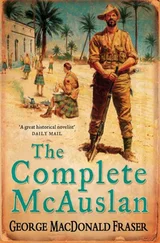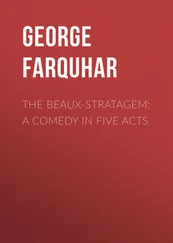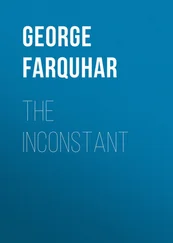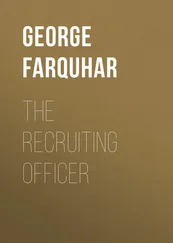George Fraser - The Steel Bonnets
Здесь есть возможность читать онлайн «George Fraser - The Steel Bonnets» — ознакомительный отрывок электронной книги совершенно бесплатно, а после прочтения отрывка купить полную версию. В некоторых случаях можно слушать аудио, скачать через торрент в формате fb2 и присутствует краткое содержание. Жанр: unrecognised, на английском языке. Описание произведения, (предисловие) а так же отзывы посетителей доступны на портале библиотеки ЛибКат.
- Название:The Steel Bonnets
- Автор:
- Жанр:
- Год:неизвестен
- ISBN:нет данных
- Рейтинг книги:4 / 5. Голосов: 1
-
Избранное:Добавить в избранное
- Отзывы:
-
Ваша оценка:
- 80
- 1
- 2
- 3
- 4
- 5
The Steel Bonnets: краткое содержание, описание и аннотация
Предлагаем к чтению аннотацию, описание, краткое содержание или предисловие (зависит от того, что написал сам автор книги «The Steel Bonnets»). Если вы не нашли необходимую информацию о книге — напишите в комментариях, мы постараемся отыскать её.
The Steel Bonnets — читать онлайн ознакомительный отрывок
Ниже представлен текст книги, разбитый по страницам. Система сохранения места последней прочитанной страницы, позволяет с удобством читать онлайн бесплатно книгу «The Steel Bonnets», без необходимости каждый раз заново искать на чём Вы остановились. Поставьте закладку, и сможете в любой момент перейти на страницу, на которой закончили чтение.
Интервал:
Закладка:
In fact, if the Scot would look, or could look, objectively at his history, he would see that the English menace was perhaps over-rated, not in physical terms, for there it was truly immense, but in what can only be called a spiritual sense. Scotland’s vitality has always been strong enough, and to spare, to resist outside influence.
But a small country that survives in Scotland’s situation, under the shadow of a reigning champion, becomes quite naturally suspicious, sensitive, and fiercely jealous in regard to its neighbour. It fears him, but cannot help imitating him and being drawn to him. England appreciates this situation completely; the canny Henry VII put it into words when he noted that the larger inevitably attracts the smaller. And from its position of superiority it is natural that England should tend to overlook its smaller neighbour, and take Scotland very much for granted. Indeed, to England, Scotland is an appendage, an extension of the English whole, and when Scotland, resenting this attitude, makes its indignation known, the English are well aware that to find the indignation trivial or amusing is the very way to drive the Scot to distraction.
It must not be thought from this that the English under-rate the Scots. Far from it; they may forget or ignore Scotland, and patronise manifestations of Scottishness, but for the Scots people, for the Scot as an individual when he comes to their attention, they reserve a higher respect than they show to anyone else. They recognise the Scots as formidable, and are secretly just a little frightened of them. In their case it may not be folk-memory, although Scotland in its time was a very real danger to England, simply by virtue of its existence on the same island; more probably it has its roots in the knowledge that a Scotsman on the make is a terrible thing.
The present state of Anglo-Scottish relations, if one can call them that, and the beginning of their peaceful relationship in the sixteenth century, are to be traced to the same root: England was a menace to Scotland because Scotland was, by its separate existence, a constant anxiety to England. In the sphere of medieval politics, and in the politics of a later day, Scotland was a key to England—a foreign and potentially hostile and dangerous state on her very border, offering a stepping-stone to England’s enemies, and not infrequently joining in against England when the latter was busily engaged on the Continent. How great a menace this posed was seen even after the union of the crowns, when only two centuries ago the London government found itself within an ace of falling to northern invasion.
To successive English monarchs Scotland was an embarrassment; for the safety of the English realm a neutral if not amiable Scotland was a necessity, and the surest—indeed, some thought the only—way to that happy state was to have Scotland firmly under English control. A reasonable enough point of view, but an objective to be realised only by the most skilful management, great strength, and endless patience. It took almost 500 years, in the long run. The period from 1286 to 1500, with which we are now concerned, in which the condition of the people in the Border districts was so radically influenced, occupied about half that time.
One can take as a starting point the night in March 1286 on which the Scottish King, Alexander III, in haste to return to his beautiful wife, set off in the dark against his counsellors’ advice, and broke his neck in falling from the path. Scotland was left, for once, in a reasonably quiet and prosperous condition, united and in a viable national state. But with the death of Alexander the throne passed from a good king, in the prime of life, to an infant, his grand-daughter Margaret, who was not even in the country.
Subsequently Edward I of England saw the possibilities of bringing Scotland under control. A marriage between his son and the infant queen seemed the logical step, but Margaret died in 1290, and Scotland was left with a most difficult question of succession. To cut a long story short, Edward used the situation to realise his own claim to overlordship of Scotland. Balliol, his puppet on the Scottish throne, so far forgot himself as to conclude an alliance with France, and Edward’s high-handedness and interference in Scottish internal affairs was answered by Scottish inroads into Cumberland and Northumberland in 1296. “They wrought some mischief”, and whatever the immediate damage done to the English Borderers, the consequences were dramatic.
The preliminaries to open war included, on Edward’s side, the seizure of property held in England by dissident Scots, and the massacre by the Scots of English sailors at Berwick. Edward, at Newcastle with a considerable force, demanded Balliol’s appearance in vain; while he was waiting he learned that the lord of the English castle of Wark had abandoned his charge and gone over to the Scots, “the violence of his passion for a Scotch lady … proving too strong for his bond of duty to his king”. Edward sent reinforcements to Wark, but the fugitive English lord returned unexpectedly with a Scottish raiding party and cut the reinforcements to bits in the dark. (Not a major incident in the campaign, but a perfect example of how national and personal affairs crossed and countered each other on the Border, and how Anglo-Scottish attraction could be even more powerful than Anglo-Scottish distaste. Here was the Borderer, self-sufficient and apart, using the frontier for his own ends in despite of central authority.)
Edward is said to have thanked God that he hadn’t started the war; he did not doubt his capacity to finish it. He waited at Wark with his army, which included some Scottish nobles, among them a rugged young knight named Robert Bruce.
Nor did he have to wait long. The Scots, arming on the Borders for the crunch which was obviously coming, struck first across the western march. They devastated the country north of Carlisle, burned the city’s suburbs, and stormed the walls which were England’s bastion on the north-west frontier. The city held, not for the first or last time, with its womenfolk lending assistance in hurling stones and hot water down on the besiegers, and the Scots retired over the Border again.
Edward ignored them. He had made his plan, and he carried it out with ruthless efficiency. He took Berwick, the Scots suffering dreadful loss. No one can be sure quite how extensive or callous the massacre was, yet it is of some importance, because certain historians fix on Berwick’s fall as a turning-point in Anglo-Scottish relations. The general opinion is that 7000 to 8000 Scots were killed; it does appear that Edward deliberately killed every man capable of bearing arms. One version says that later the women—and presumably the children—were sent into Scotland.
On the other hand, it has been suggested that the English slaughtered everyone in the town, regardless of age or sex. “Indiscriminate butchery”, says one historian, 1 and the total of dead has been placed as high as 17,000. It is certainly not impossible that Edward ordered a general massacre, pour encourager les Ecossais; he was perfectly capable of it. If he did, then there may be grounds for the contention that this, more than anything else, bred hatred of England north of the line. I would doubt it; at least, so far as its lasting effect is concerned, it seems unlikely that Scottish reivers three centuries later were galloping south thinking “Remember Berwick”. But even if its effect has been overstated, the Berwick massacre was another strong link in the chain of Anglo-Scottish hostility.
Edward now addressed himself to bringing Scotland to heel. It was not difficult. He marched through eastern Scotland as far as Elgin, defeating the Scots at Dunbar en route, received submission on all sides, appropriated the Stone of Destiny, and so back to Berwick again. He had taken five months over the campaign, and only once had to spend a night under canvas.
Читать дальшеИнтервал:
Закладка:
Похожие книги на «The Steel Bonnets»
Представляем Вашему вниманию похожие книги на «The Steel Bonnets» списком для выбора. Мы отобрали схожую по названию и смыслу литературу в надежде предоставить читателям больше вариантов отыскать новые, интересные, ещё непрочитанные произведения.
Обсуждение, отзывы о книге «The Steel Bonnets» и просто собственные мнения читателей. Оставьте ваши комментарии, напишите, что Вы думаете о произведении, его смысле или главных героях. Укажите что конкретно понравилось, а что нет, и почему Вы так считаете.












